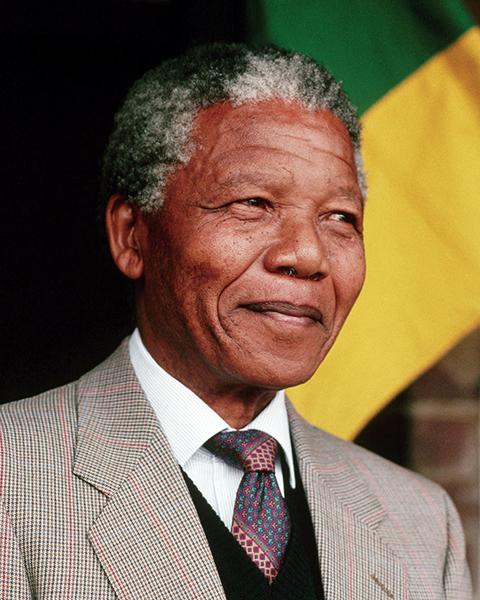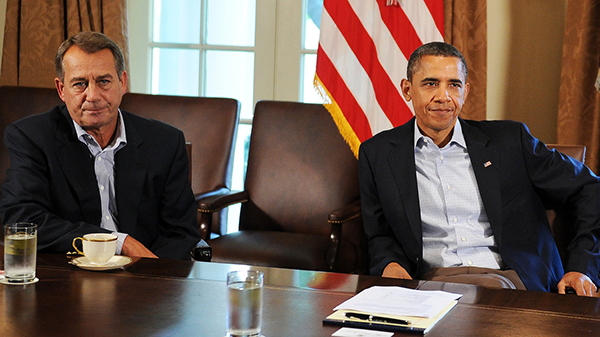It was around 5:00 p.m. on December 5 when I received a phone call from my wife. She said “Nelson Mandela died” and began to cry. Although impending, the news was nonetheless heartbreaking. Both my wife and I were born in South Africa and grew up during the Apartheid era. We spent many years of our lives supporting the Anti-Apartheid movement and the release of Nelson Mandela. As I drove home on this wet and rainy evening in Atlanta traffic, it was a time for reflection.
The two most significant events for me during the Apartheid years were the release of Mandela in February of 1990, and then exercising my right to vote for the first time in my mid-twenties in South Africa’s first democratic election. The year was 1994. Both events were made possible by the very skillful negotiator, Nelson Rolihlahla Mandela or better known in South Africa as Madiba.
As I reflected on the remarkable life of Mandela, I came to realize that I had much to learn from this master negotiator. His skill as a negotiator enabled him to achieve his life-long goal of an Apartheid-free South Africa. According to Harvard Law professor and chariman of the Program on Negotiation, Robert H. Mnookin:
“Nelson Mandela was the greatest negotiator of the twentieth century.” Let us examine why.
The negotiations to end Apartheid between Mandela and the South African government were significant not only because they changed the social and political landscape of the country, but because they provided an example of peaceful diplomatic negotiation succeeding where violence seemed inevitable.
Negotiations between Mandela and the South African government (National Party) spanned a decade. During that time Mandela was offered release from prison on several occasions that was conditional upon various scenarios that to him would defeat the purpose of the freedom struggle. One notable example was when former President F. W. de Klerk finally agreed to Mandela’s release in 1990. De Klerk wanted to release Mandela discreetly by flying him across the country and he wanted the release to happen within a 24-hour period. De Klerk wanted to deny Mandela his “walk of freedom.” Mandela wanted 10 days so that his organization (ANC) and followers had time to prepare. They settled on 7 days and Mandela was allowed to walk out of the gates of Victor Verster Prison a free man, as negotiated.
These two men, even though they disagreed politically and personally, knew that they needed one another and that they needed to remain on speaking terms if a negotiated dismantling of apartheid was the objective.
“Although we were political opponents – and although our relationship was often stormy – we were always able to come together at critical moments to resolve the many crises that arose during the negotiation process,” de Klerk remembered.
In the book, “Getting to Yes,” the authors say that “People see two ways to negotiate: soft or hard. The soft negotiator wants to avoid conflict and so makes concessions readily to reach agreement. He or she wants an amicable resolution; yet often ends up exploited and feeling bitter. The hard negotiator sees any situation as a contest of wills in which the side that takes the more extreme positions and holds out longer fares better.”
The book talks about a third way to negotiate by employing both the hard and soft way. This method is called principled negotiation. Mandela was a hard negotiator when it came to his principles, he did not waver and never compromised, but he was soft by being inclusive and forgiving. Imagine sitting across the table and negotiating with a man who represented the system that held him in captivity, away from his loved ones, for 27 years.
The four aspects of principled negotiations are as follows:
- People: Separate the people from the problem. In order for the negotiations to be successful both Mandela and de Klerk had to put aside their differences in order to achieve success.
- Interests: Focus on Interests, not positions. Mandela believed that de Klerk was aware of and supported the ‘Third Force’. He would speak about it publicly, yet focus on the public interests (safety and equal rights) at the negotiating table. (The ‘Third Force’ was a secret organization that would attempt to derail progress towards a true democracy).
- Options: Invent multiple options looking for mutual gains before deciding what to do. President Barack Obama delivered a speech at Nelson Mandela’s memorial on December 10, 2013 and he said “Nelson Mandela reminds us that it always seems impossible until it is done…that we can chose a world defined not by our differences but by our common hopes….” – Mandela put himself in the opposition’s shoes to gain perspective on their point of view and was skilled at looking for mutual gains during negotiations.
- Criteria: Insist that the result be based on some objective standard. Mandela’s objective standard was his principles. He stayed the course no matter the challenge.
In her article “Nelson Mandela: Greatest Negotiator,” Susan Hackley says: “He rejected the simple-minded notion that one must either negotiate with the Devil or forcibly resist. He did both. He was willing to make concessions, but not about what was most important to him. With respect to his key political principles, he was unmovable.”
What was Mandela’s BATNA?
In negotiation, BATNA refers to your best alternative to a negotiated agreement, or the best outcome you can expect if you fail to reach agreement at the bargaining table with your counterpart.
We are all too familiar with this very recent example:
As noted by Katie Shonk of Harvard Law School, “As the U.S. government approaches a potentially catastrophic default on its debt in October, President Obama remains determined to avoid negotiations with Republican leaders on the issue, the New York Times reports, a situation that leaves House of Representatives Speaker John Boehner with an uncertain BATNA, or best alternative to a negotiated agreement.”
What was Mandela’s BATNA? I recall the atmosphere in South Africa before the public became aware that a negotiated settlement had been reached. People lived in fear of the possibilities of failure. Some prepared for the worst, while the majority remained cautiously optimistic that there will be no violence or bloodshed. South Africa had already lost too many of its children over the years – it was time for peace and forgiveness.
In closing, I quote my hero and inspiration, the greatest negotiator – Nelson Mandela…
“During my lifetime I have dedicated myself to this struggle of the African people. I have fought against white domination, and I have fought against black domination. I have cherished the ideal of a democratic and free society in which all persons live together in harmony and with equal opportunities. It is an ideal which I hope to live for and to achieve. But if needs be, it is an ideal for which I am prepared to die.”
Sources:
- http://www.pon.harvard.edu/daily/international-negotiation-daily/nelson-mandela-greatest-negotiator/
- http://www.pon.harvard.edu/category/daily/batna/?cid=748
- Getting to YES – Roger Fisher and William Ury with Bruce Patton.



